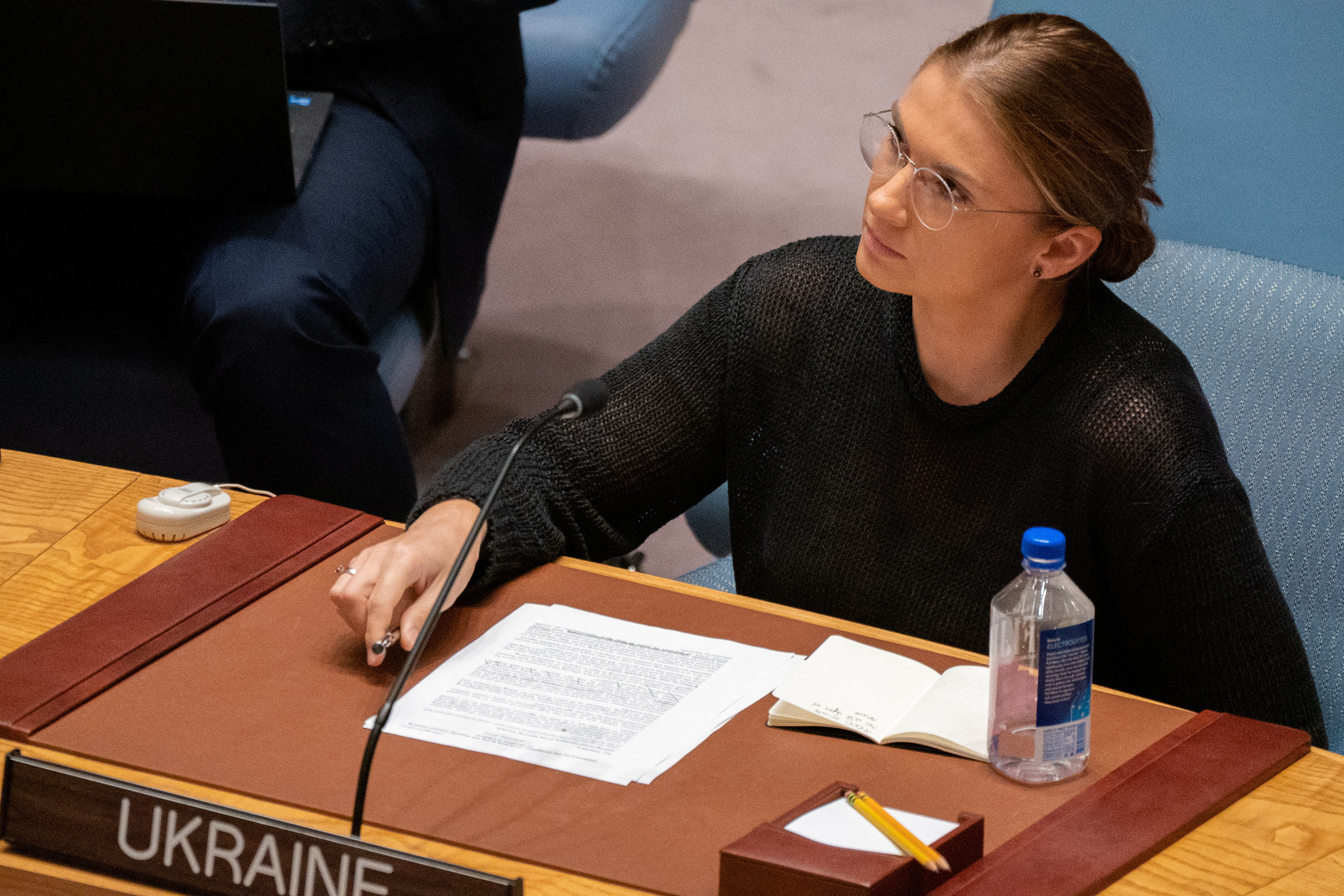
The United Nations said there are credible accusations that Russian forces have sent Ukrainian children to Russia for adoption as part of a larger-scale forced relocation and deportation programme.
Ilze Brands Kehris, assistant UN secretary-general for human rights, told a meeting of the UN Security Council on Wednesday that Russian forces are also running “filtration” operations in which Ukrainians in occupied territories face systematic security checks that have involved “numerous” human rights violations.
“There have been credible allegations of forced transfers of unaccompanied children to Russian occupied territory, or to the Russian Federation itself,” Kehris said.
“We are concerned that the Russian authorities have adopted a simplified procedure to grant Russian citizenship to children without parental care, and that these children would be eligible for adoption by Russian families,” she said.
The filtration procedures of Ukrainian adults judged as close to the Ukraine government or military have involved torture and the forcible removal and transfer to Russian penal colonies and other detention centres, Kehris said.
“In cases that our office has documented, during ‘filtration,’ Russian armed forces and affiliated armed groups have subjected persons to body searches, sometimes involving forced nudity, and detailed interrogations about the personal background, family ties, political views and allegiances of the individual concerned,” she said.
“We are particularly concerned that women and girls are at risk of sexual abuse during ‘filtration’ procedures.”
Today, at the request of 🇺🇸&🇦🇱, #UNSC will hold an open mtg.on the Forced Displacements of🇺🇦Civilians & the Use of Filtration Operations
To brief the council: DPPA Under SG @DicarloRosemary, OHCHR ASG Ilze Brands Kehris ,CSO repr. Oleksandra Drik
📺⬇️https://t.co/mhyrIpLAtk pic.twitter.com/bZe9D5E10d
— Albania in UN (@AlMissionUN) September 7, 2022
‘Separated from their families’
United States Ambassador Linda Thomas-Greenfield told the meeting that estimates from a variety of sources, including the Russian government, indicate that Russian authorities have interrogated, detained and forcibly deported between 900,000 and 1.6 million Ukrainians.
Thomas-Greenfield said the estimates indicate thousands of children have been subject to filtration, “some separated from their families and taken from orphanages before being put up for adoption in Russia”.
According to US information, “more than 1,800 children were transferred from Russian-controlled areas of Ukraine to Russia” just in July, she said.
Filtration of Ukrainian adults allows Russia to identify Ukrainians it “deems insufficiently compliant” to Russian control, she said.
“And there is mounting and credible evidence that those considered threatening to Russian control because of perceived pro-Ukrainian leanings are ‘disappeared’ or further detained,” she said.
Accusing the West of trying to besmirch his country, Russian UN Ambassador Vasily Nebenzya rebuffed the allegations, calling them “unfounded”.
Nebenzya said what was labelled “filtration” was simply registering people coming to Russia.
“As far as we can judge similar procedures are applied in Poland and other countries of the European Union against Ukrainian refugees,” he told the Security Council.
He said more than 3.7 million Ukrainians, including 600,000 children, have gone to Russia or Russian-controlled separatist areas in eastern Ukraine, but they “aren’t being kept in prisons”.
‘Potential crimes against humanity’
Al Jazeera’s diplomatic editor James Bays, reporting from the UN headquarters in New York, said the Russian ambassador told the Security Council that the allegations made at the meeting were “a new milestone in the disinformation campaign by Western nations”.
The ambassador also described those who had been transferred to Russia as refugees, and his country was “providing them with every assistance”, Bays said.
However, Human Rights Watch said its research has shown that “force deportation is taking place, and it says that amounts to a war crime”, Bays added.
Human Right Watch released a report last week on the forcible transfers of Ukrainians to Russia, a practice which the organisation described as “a serious violation of the laws of war that constitute war crimes and potential crimes against humanity”.
US Ambassador Thomas-Greenfield told the Security Council meeting that Russia’s denial of using filtration was expected, adding that the UN should be allowed to investigate the allegations.
“Let the United Nations in,” she told the Russian ambassador and other council members.
“Give the independent observers access. Give NGOs access. Allow humanitarian access,” she said.
The UN under-secretary-general for political affairs, Rosemary DiCarlo, said the reports of forced transfer of Ukrainians by Russian forces “must be investigated”.
All wars are tragic, but none more than wars of choice. The disturbing allegations of forced displacement and abuse in "filtration" camps in #Ukraine must be investigated. We need peace in Ukraine, peace based on the @UN Charter and international law. https://t.co/JVE3epY1x5
— Rosemary A. DiCarlo (@DicarloRosemary) September 7, 2022
“The persistent allegations of forced displacement, deportation and so-called ‘filtration camps’ run by the Russian Federation and affiliated local forces are extremely disturbing,” she said.
DiCarlo also called for UN access to Ukrainians living in Russian-controlled areas and reiterated that the International Committee of the Red Cross and the UN Human Rights Monitoring Mission in Ukraine “must have unimpeded access to all individuals detained in relation to the ongoing war”.
“This includes access to places of internment of Ukrainian prisoners of war and detainees in the Russian Federation,” she said.
“Both sides to the conflict must fully abide with their obligations under international law.”
Earlier, the US State Department said Russian President Vladimir Putin’s office is directly managing the filtration program and the forced relocation of thousands of Ukrainians into Russia.
“We assess that the Kremlin use filtration operations as crucial to their efforts annex areas of Ukraine under their control,” State Department Deputy Spokesperson Vedant Patel said.







